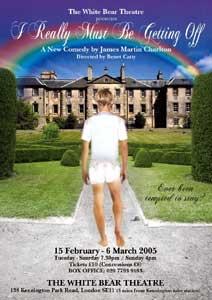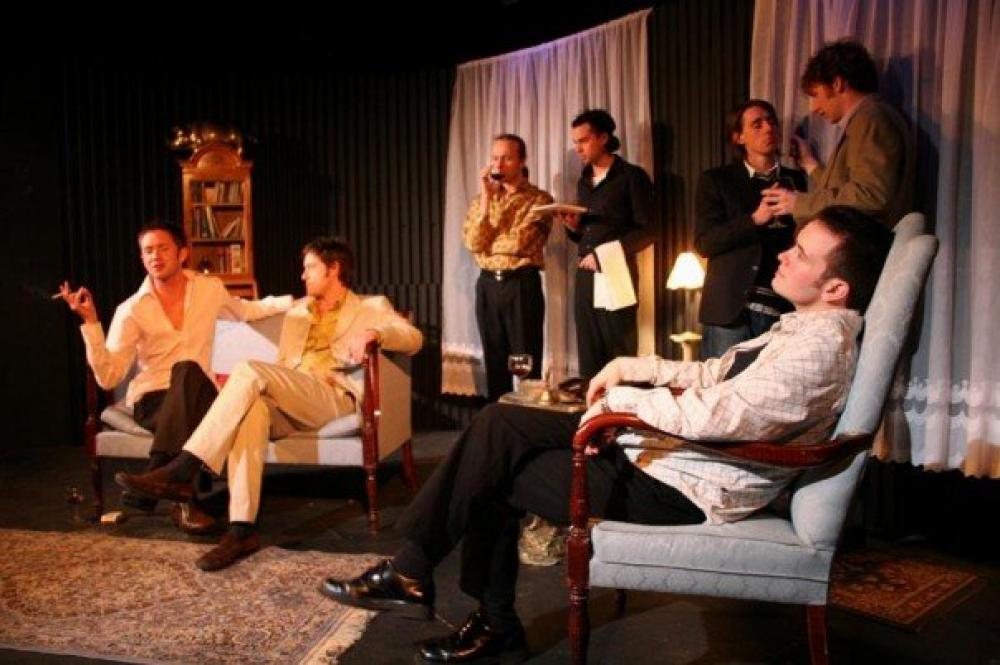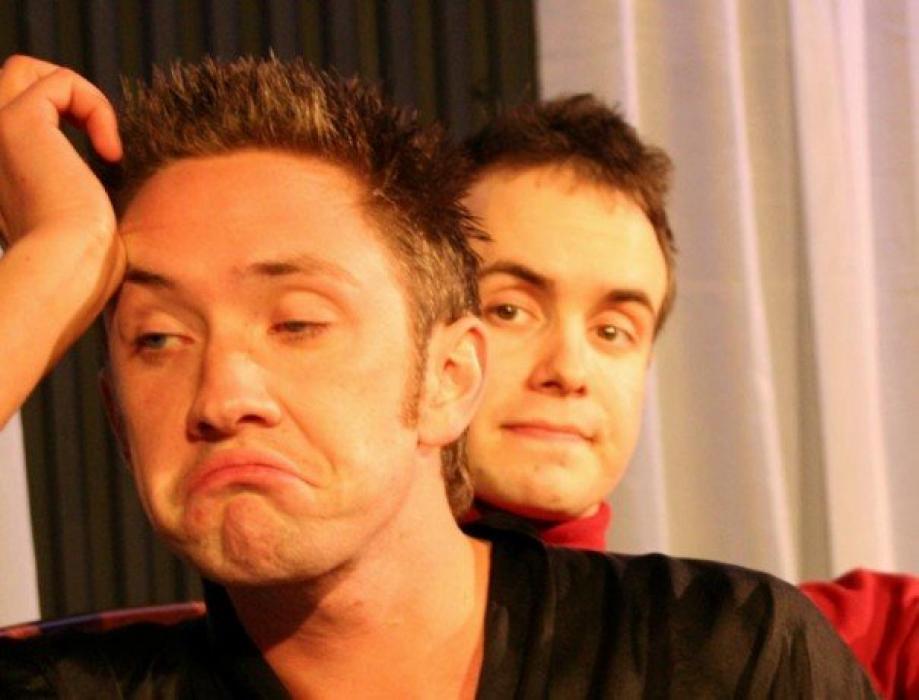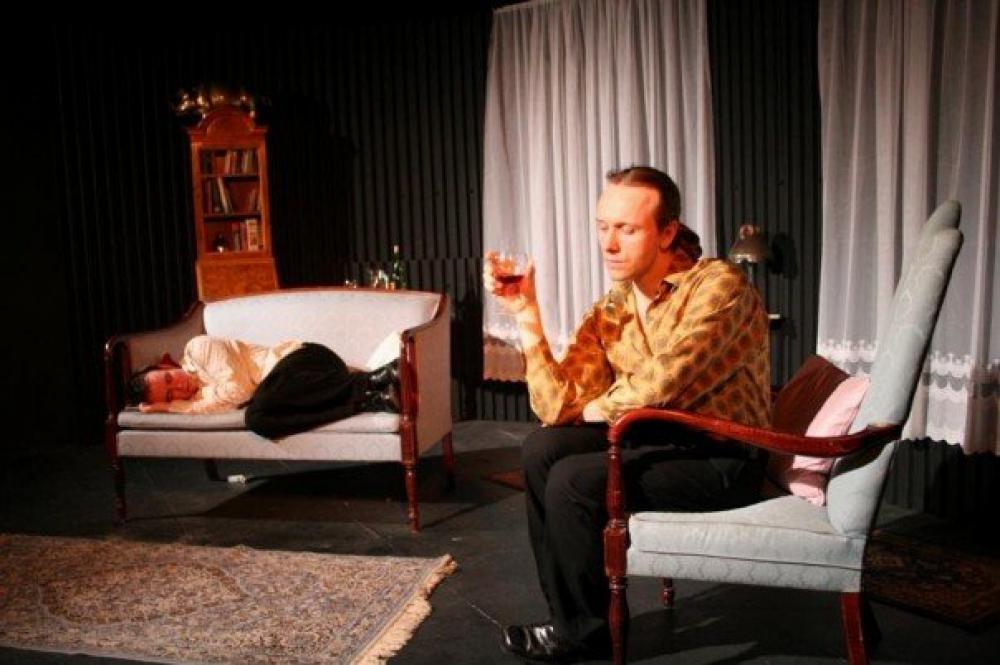I Really Must be Getting Off
Note
Who hasn’t been on a scene, only to find out that it’s nowhere? Very often, what keeps you there is desire. So it is with Will the protagonist in this play. He’s hanging around with the cool kids, and the coolest of the cool kids is very pretty. So Will stays longer than he ought – he’s got better places to go – and sees the truth about the people he’s hanging with.
I wrote I Really Must… to get some people off of my chest, and to try something new. The play was a move away from the poetic language and overt symbolism of my previous plays. I fancied having a go at drawing room comedy, which gave me a decent practice run for Coward. One or two of the characters bear the humours of some individuals who bothered me for a while. They’re all gone from my life now, and I’m grateful they gave me this play.
Despite its ostensible refuge from overt symbolism, Will gets his name and everyman status from a line of Northrup Frye’s, bouncing off of a Blake quotation:
“There can be no Good Will”; there is a perpetual conflict between the imagination and the will to prevent the latter from deserting to the Selfhood, and there can be no free will either, as the will must be attached to one or the other. [Frye, Northrop. Fearful Symmetry (p. 294). Princeton University Press]
The party scene of the play has an aspect of Poe’s Masque of the Red Death about it. The whole thing is set just before 9/11. Every tower of lies comes down. You may think that you’ve escaped history but it has a way of gate-crashing in. Usually takes the form of one of the four horsemen.
The play, featuring an all-gay dramatis personae and plenty of bitchy one-liners, was initially sold as a gay play. But we got a decent cross-section of theatre goers coming to see it, and it sold out the last couple of weeks of its run. It’s a short piece, so doesn’t outstay any welcomes.
Story
Will, a 30-something gay professional, has accepted an invite from an associate, Severn, to come and stay at the country house of Severn’s wealthy partner. Severn has invited some other gay friends down for the weekend: bickering couple, Miles and Andrew; the slightly sinister transatlantic phenomenon Bosco; and Bobby, young and pretty enough to be something of a distraction.
Will is feeling guilty about bunking a conference on something very important to be here. But when he gets a sight of Bobby, he decides to stay.
The guests bitch, waste time, play games, argue, and pursue their desires. All the while, they are waited on by a handsome Bosnian Muslim waiter, Arben. Sooner or later, someone is going to get caught with his trousers down, peeking, brought to his knees…
Casting requirements: 7 m
Production(s)
Premier: White Bear Theatre, Kennington, 13 February – 6 March, 2005
Cast: Ian Bonar (Bobby), Andrew Chisholm (Severn), Daniel Crossley (Andrew), Jack Lewis (Will), John Paul Micaleff (Arben), Adam Napier (Bosco), Harry Smith (Miles)
Directed and designed by Benet Catty; lighting by Benet Catty and Chris Lince
Produced by Michael Kingsbury for The White Bear Theatre
Press/Audience Reaction
"The country house play is a dependable form for detailing the state of (part of) the nation, and it gets a vigorous outing here courtesy of James Martin Charlton... splendid catty dialogue... this entertaining bunch." - Time Out
"...a cross between Oscar Wilde and Luigi Pirandello... a kind of Walpurgisnacht for the soul." - What's On
"Getting Off uses the form of the drawing room comedy to peek at the lives, loves and lusts of a bunch of rich young gay guys spending a weekend together in a country house. The sexual tension may be high but the morals are low, as Will, the central character, discovers to his cost... Audiences' responses varied hugely. Some were entertained by it but didn’t ‘get’ the purpose; some ‘got it’ but were turned off by the unpleasantness of some of the characters. But as the run carried on, reactions became more consistent and enthusiastic and increasingly the show would sell out. The play, the production and the performances all received excellent notices; Gordon Dickinson – an agent to John Osborne amongst others in the past – said it was the best ensemble he’d seen anywhere, and several producers and people from within the industry expressed their enthusiasm." - Original Director Benet Catty



